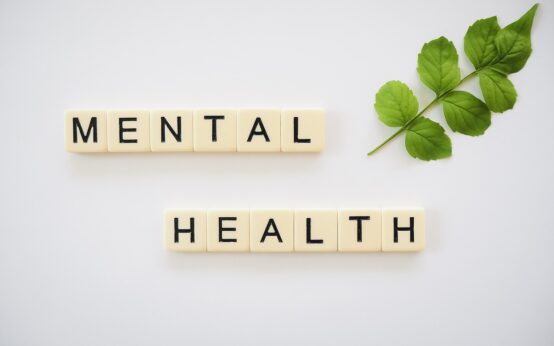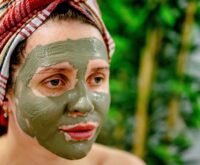Have you ever wondered how some people manage to age so gracefully while maintaining their health and vitality? Many believe that aging well is an art, and while genetics do play a role, lifestyle choices are significant in determining how gracefully you age. Embracing a healthier lifestyle can help you enjoy your later years with energy and enthusiasm. In this guide, we will discuss various tips and strategies that can contribute to a more graceful aging process.
Understanding the Aging Process
Aging is a natural part of life and a process that everyone experiences. But do you know what actually happens to your body as you age? Understanding the biological changes can empower you to make better decisions regarding your health.
Biological Changes
With age, your body’s systems begin to slow down. Cellular regeneration decreases, impacting skin elasticity, bone density, and muscle mass. Hormonal changes, such as reduced levels of estrogen or testosterone, also play a part by affecting mood, energy levels, and even mental sharpness.
The Role of Genetics
While you can’t change your genetic makeup, being aware of your family history can be crucial. It can guide you in taking preventive measures, especially if you’re predisposed to certain conditions like heart disease or diabetes.
Nutrition: The Cornerstone of Longevity
Your diet has a profound impact on how you age. What you put into your body can either hasten or delay the aging process, so making informed choices is key to maintaining health as you grow older.
Balanced Diet
Eating a balanced diet rich in fruits, vegetables, whole grains, and lean proteins can provide the essential nutrients that your body needs. Omega-3 fatty acids, found in fish and flaxseeds, are known to promote heart health and are excellent for cognitive function as well.
Hydration
Staying hydrated is crucial for maintaining skin elasticity and proper organ function. Aim for at least eight glasses of water per day. Beverages like green tea can also offer antioxidants, which combat oxidative stress and may slow down aging.
Supplements
If your nutritional needs aren’t fully met through diet alone, consider supplements. Calcium and Vitamin D are essential for bone health, while Vitamin B12 can support brain function. Always consult a healthcare provider before starting any new supplement regimen.

Fitness and Continued Mobility
Exercise is a pillar of a healthy lifestyle and becomes increasingly vital as you age. It helps maintain not just your physical but also your mental health.
Cardio and Aerobic Exercises
Activities such as walking, swimming, and cycling enhance cardiovascular health and improve endurance. Aim for at least 150 minutes of moderate aerobic exercise weekly.
Strength Training
To counteract muscle loss, incorporate light weightlifting or resistance band exercises into your routine. Strength training increases muscle mass, fortifies bones, and contributes to weight loss.
Flexibility and Balance
Activities such as yoga and tai chi can improve flexibility and balance, reducing the risk of falls. These exercises also promote breathing and stress relief, benefiting emotional well-being.
Mental Health and Cognitive Function
Taking care of your mental health is just as crucial as caring for your body. A sharp mind can lead to more independence and a greater quality of life.
Mental Stimulation
Keep your brain active by learning new skills, reading, or engaging in puzzles and games. Brain-training apps can also be a fun way to boost cognitive functions.
Mindfulness and Relaxation
Practices like meditation and deep-breathing exercises reduce stress levels and promote mental clarity. These activities can also aid in emotional regulation and help you maintain a positive outlook.
Social Connections
Stay socially active by maintaining relationships and participating in community events or clubs. Social interactions can ward off feelings of loneliness and have been linked to improved cognitive health.

Quality Sleep: Rest for Rejuvenation
Sleep is when your body repairs itself. As you age, changes in sleep patterns are normal, but achieving quality rest is vital for repair and rejuvenation.
Sleep Environment
Create a peaceful sleeping environment by keeping your bedroom dark, cool, and quiet. Invest in a good-quality mattress and pillows to support restful sleep.
Sleep Routine
Establish a consistent sleep schedule by going to bed and waking up at the same time every day. Avoid caffeine and electronic screens at least one hour before bedtime to enhance sleep quality.
Skincare: Protecting Your Natural Beauty
Caring for your skin can significantly affect how you perceive aging. It’s not about vanity, but rather maintaining the skin’s health and vitality.
Daily Care
Adopt a skincare routine that includes cleansing, moisturizing, and applying sunscreen daily. Sunscreen is crucial, as UV rays are among the leading causes of premature aging.
Anti-Aging Products
Consider using products with ingredients like retinoids, peptides, and antioxidants. These can boost collagen production and improve skin texture, addressing fine lines and wrinkles.
Professional Treatments
Consult a dermatologist if you’re considering professional treatments like chemical peels or laser therapies. These can offer targeted solutions to common aging concerns but should be approached with professional guidance.

The Importance of Preventative Healthcare
Getting regular check-ups is crucial for early detection and prevention of potential health issues. Screening tests can identify conditions before they become serious.
Routine Screenings
Schedule regular health screenings such as blood pressure checks, cholesterol levels, and cancer screenings like mammograms or colonoscopies. Keeping your vaccinations up-to-date is also essential.
Personalized Healthcare Plan
Work with your healthcare provider to create a personalized plan that addresses your unique risks and health goals. This proactive approach can alleviate future health issues.
Emotional Well-Being: A Positive Perspective
Your emotional health influences your overall well-being and affects how gracefully you age. Cultivating a positive mindset can lead to a healthier, more fulfilling life.
Gratitude and Mindset
Practice gratitude by acknowledging the good in your life. A positive mindset can boost your immune system and improve mental health.
Life Purpose
Having a sense of purpose can significantly affect your happiness levels. Engage in hobbies, volunteer work, or any activity that fulfills you and gives your life meaning.
Coping Mechanisms
Learn healthy ways to cope with stress, such as talking with trusted friends or keeping a journal. Addressing emotional turmoil head-on will help maintain your emotional balance.

Addressing Lifestyle Habits
Certain lifestyle choices can profoundly affect your health and the aging process. Recognizing areas for improvement can enhance your quality of life as you age.
Tobacco and Alcohol
Avoid smoking and limit alcohol consumption. Both are linked to various health issues that can accelerate aging, including heart diseases and cancers.
Drugs and Medications
Be cautious with medications and always follow the prescription. Misuse of drugs can lead to dependency and impair physical and mental health.
Regular Health Consultations
Schedule periodic visits with your healthcare provider to discuss any ongoing treatments or medications. This ensures that you are using them safely and effectively.
Cultivating a Supportive Environment
A nurturing environment is conducive to healthy aging, whether in terms of your living space or the people around you.
Optimize Your Living Space
Create a home environment that accommodates your changing needs. This could include modifications for safety, such as grab bars in bathrooms, or simply creating a space that brings you peace and joy.
Community Involvement
Being active within your community provides a sense of belonging and worth. Attend local events, join clubs, or volunteer to foster a supportive network.
Family and Friends
Strengthening bonds with family members and friends can offer emotional support. Engage in activities together and cherish shared experiences.
Empower Yourself with Knowledge
Staying informed about aging and health can empower you to make more educated decisions about your lifestyle.
Educational Workshops
Participate in workshops or seminars related to health and aging. These often offer practical tips and up-to-date information.
Online Resources
Use reliable online platforms to keep track of the latest research in health and wellness. Websites from reputable health organizations provide a wealth of information.
Professional Guidance
Consult healthcare professionals for advice tailored to your health needs. Their expertise can guide you in planning your health journey effectively.
Conclusion
Aging gracefully is about embracing every stage of life while prioritizing your well-being. By adopting these holistic approaches, you are more likely to enjoy a vibrant, fulfilling life. Remember, aging is a journey—not a destination—and every positive change you make today can significantly impact the quality of your tomorrow. Commit to strategies that nurture both your body and mind, fostering a lifestyle that supports healthy aging.

 10 Simple Self-Care Practices For Stress Relief
10 Simple Self-Care Practices For Stress Relief  The Ultimate Self-Care Checklist for Better Mental Health
The Ultimate Self-Care Checklist for Better Mental Health  Easy Self Care Ideas You Can Do at Home
Easy Self Care Ideas You Can Do at Home  How To Practice Mindfulness Daily
How To Practice Mindfulness Daily  Best Apps For Mental Health And Mindfulness
Best Apps For Mental Health And Mindfulness  How To Use Journaling For Mental Health Improvement
How To Use Journaling For Mental Health Improvement  How To Create A Skincare Routine For Oily Skin
How To Create A Skincare Routine For Oily Skin  The Best Ingredients For Anti-Aging Skincare
The Best Ingredients For Anti-Aging Skincare  Skincare Myths That Are Wrecking Your Glow
Skincare Myths That Are Wrecking Your Glow  Natural Skincare 101: Everything you Need to Know
Natural Skincare 101: Everything you Need to Know  The Ultimate Guide To Sunscreen: What You Need To Know
The Ultimate Guide To Sunscreen: What You Need To Know  Guide to the Best Anti acne Products for Clear Skin
Guide to the Best Anti acne Products for Clear Skin